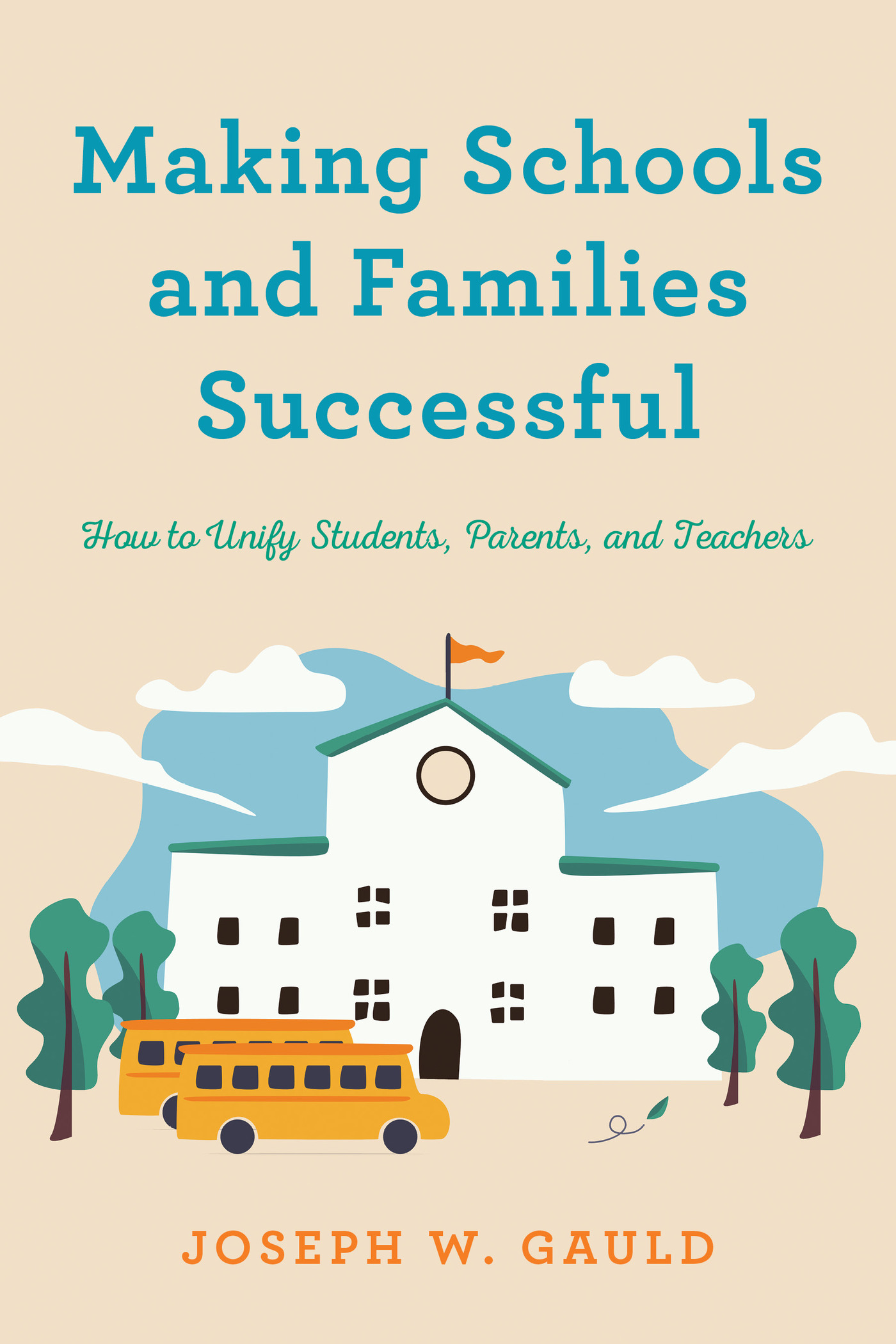Making Schools and
Families Successful
Making Schools and
Families Successful
How to Unify Students, Parents, and Teachers
Joseph W. Gauld
ROWMAN & LITTLEFIELD
Lanham Boulder New York London
Published by Rowman & Littlefield
An imprint of The Rowman & Littlefield Publishing Group, Inc.
4501 Forbes Boulevard, Suite 200, Lanham, Maryland 20706
www.rowman.com
6 Tinworth Street, London SE11 5AL
Copyright 2021 by Joseph W. Gauld
All rights reserved. No part of this book may be reproduced in any form or by any electronic or mechanical means, including information storage and retrieval systems, without written permission from the publisher, except by a reviewer who may quote passages in a review.
British Library Cataloguing in Publication Information Available
Library of Congress Cataloging-in-Publication Data Available
Names: Gauld, Joseph W., author.
Title: Making schools and families successful : how to unify students, parents, and teachers / Joseph W. Gauld.
Description: Lanham : Rowman & Littlefield, [2021] | Includes index. | Summary: Schools will learn to first emphasize cooperation and unity, which would create a successful school culture; one encouraging competition with respect rather than arroganceProvided by publisher.
Identifiers: LCCN 2021010684 (print) | LCCN 2021010685 (ebook) | ISBN 9781475859485 (cloth) | ISBN 9781475859492 (ebook)
Subjects: LCSH: Home and school. | EducationParent participation.
Classification: LCC LC225 .G38 2021 (print) | LCC LC225 (ebook) | DDC 371.19/2dc23
LC record available at https://lccn.loc.gov/2021010684
LC ebook record available at https://lccn.loc.gov/2021010685
 TM The paper used in this publication meets the minimum requirements of American National Standard for Information Sciences Permanence of Paper for Printed Library Materials, ANSI/NISO Z39.48-1992.
TM The paper used in this publication meets the minimum requirements of American National Standard for Information Sciences Permanence of Paper for Printed Library Materials, ANSI/NISO Z39.48-1992.
Printed in the United States of America
I dedicate this book to my parents; my wife, children, and grandchildren; my colleagues, students, and their parents; and others who helped inspire the wisdom in me that I hope will contribute to yours.
Foreword
Dear Reader,
First, full disclosure: I am a parent whose family was transformed by the educational process described in this book. Our family started at the Hyde School in Maine in 1987; at our first interview, Joe Gauld looked at my husband and me and said, What you dont understand is that you people have the problem! It didnt take long to understand what, so baffling at the time, was true: we talked about character (dont lie, dont cheat), but we lived in an achievement culture that put emphasis on where we vacationed, what neighborhood we lived in, what kind of car we drove, how much money we made. Our character speeches were drowned out.
It did not take long for me to see that the Unifying kind of education described in these pageswhere teachers were concerned not only about my childs academics but even more about his character, as well as their own, and where parents were asked to become role models of character and put principles at the center of their homeswas the kind of education that all children and families deserved. Regardless of color, race, or creed, this kind of education needed to be spread across America.
What I loved most about the Unifying program was the partnership we had with the school: the trust I had in the faculty allowed me to let them hold my child accountable when needed; again, character was what mattered most. Thus, I was thrilled when, in 1993, I was asked to head the Family Education Department at one of Hydes early public school partnerships, the Hyde Leadership School in New Haven, Connecticut. I was given a chance to pass on this framework!
This public magnet school brought teachers, parents, and students together in the Unifying program, which helped transform families in an inner-city community. At graduation, students made the same kind of speeches to their families and teachers you will read in this book. But most important, the kids had visions for their lives and they knew themselves and what it would take to fulfill their dreams.
This educational process works. Ive seen it in the Pennsylvania schools that Joe refers to; Ive been a part of it in the Hyde Schools in New York City; Ive seen it work in communities that have adopted it for their organization or workplace.
If you are an educator, involved in education, or just interested in developing strong, healthy, self-aware, and motivated kids, read what Joe teaches in this book. If you are a parent and want a deeper relationship with your kids, read this book. And please dont wait. All kids deserve this kind of education.
Pam Hardy
Prologue
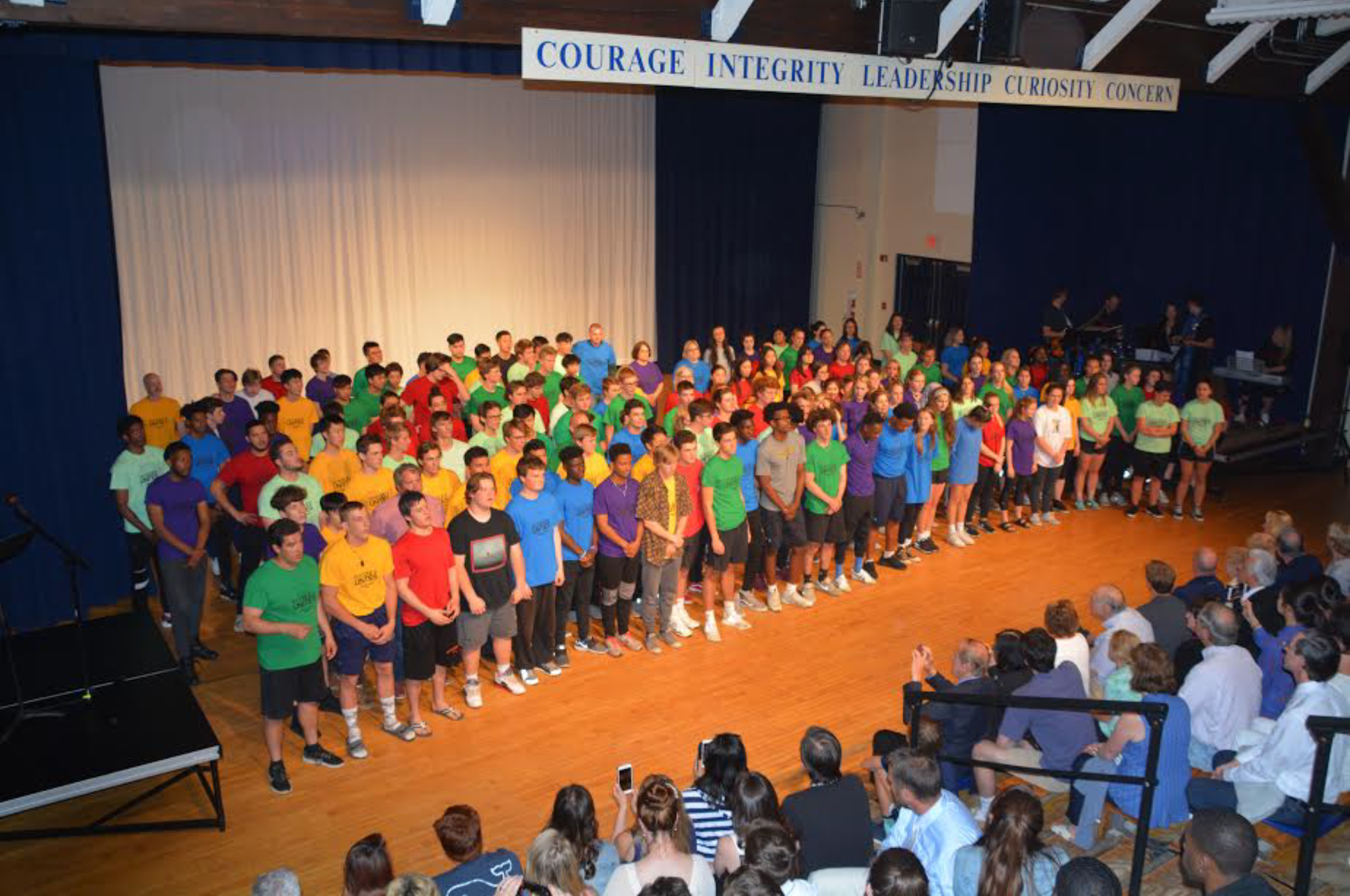
Students and Teachers Singing School Song to Parents.
Hyde School
This book came out of my 1962 commitment to find a better way to prepare kids for life. Now, more than a half century later, I feel confident in the schools, administrators, teachers, parents, and students who are developing that better way.
Meanwhile, the educational system I sought to change has remained an undaunted fortress, in spite of its ever-increasing problems. Why?
Some might say people just resist changea lot of truth in that. But I think more has to do with parental attitudes.
As tailenders of the Greatest Generation, our parents emphasized character and were very much in control. However, after World War II, the GI Bill gave us free schooling, and schools soon became important in preparing students for the best colleges.
Thus, parents ceded a lot of their authority to the school (message to their kids: Get good grades). Once parents ceded this top position to the school, they couldnt also turn around and then demand character growth, so they slipped back to a less demanding role, one that persists today: child protector. Comparing this parental attitude with that of parents of the Greatest Generation would be amusing.
I think a by-product of this attitude is parents seeking a relationship or love from their children. This undermines the deeper relationship parents should have in being dedicated to preparing children for life by helping them realize their best and become self-sufficient by age nineteen.
This weaker parent leadership has contributed to a stronger youth culture, which in turn has been greatly strengthened by the Internet. It is not a healthy situation.
Whatever the authority of parents and schools, the youth culture allows adolescents latitude in their actions, morals, and behaviors that can encourage their worst. But they generally do not realize that once they enter the adult world, except for a small group, the youth culture is gone, and they are accountable for everything they do. The pressure of this is such that some dont recover, while a number of others get stuck and never find the opportunity to explore their unique potential.
I believe this is why you see a number of twentysomethings struggling today.
Now that I've got that off my chest, let me say I have great enthusiasm for what our nation can accomplish, and I believe we can build an educational system that will inspire the world and help us build a democracy beyond anything we have imagined.

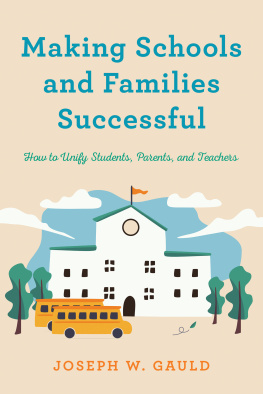

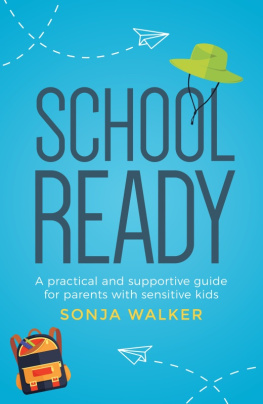

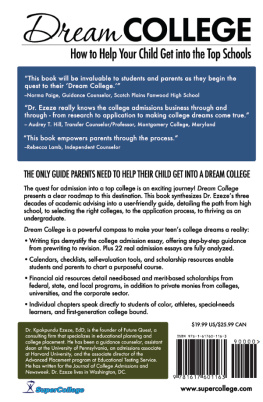
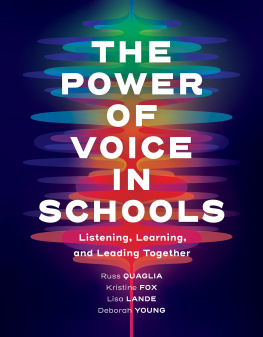
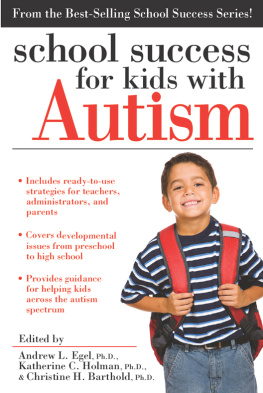
 TM The paper used in this publication meets the minimum requirements of American National Standard for Information Sciences Permanence of Paper for Printed Library Materials, ANSI/NISO Z39.48-1992.
TM The paper used in this publication meets the minimum requirements of American National Standard for Information Sciences Permanence of Paper for Printed Library Materials, ANSI/NISO Z39.48-1992.